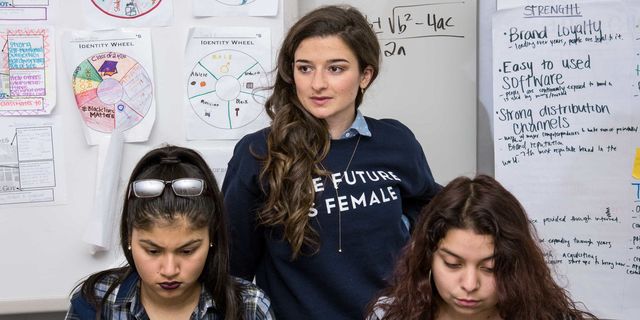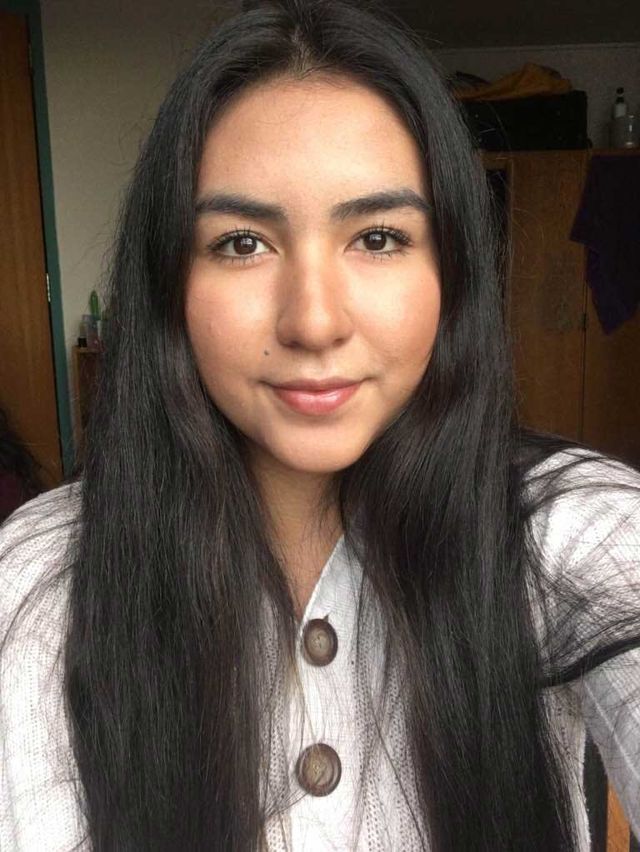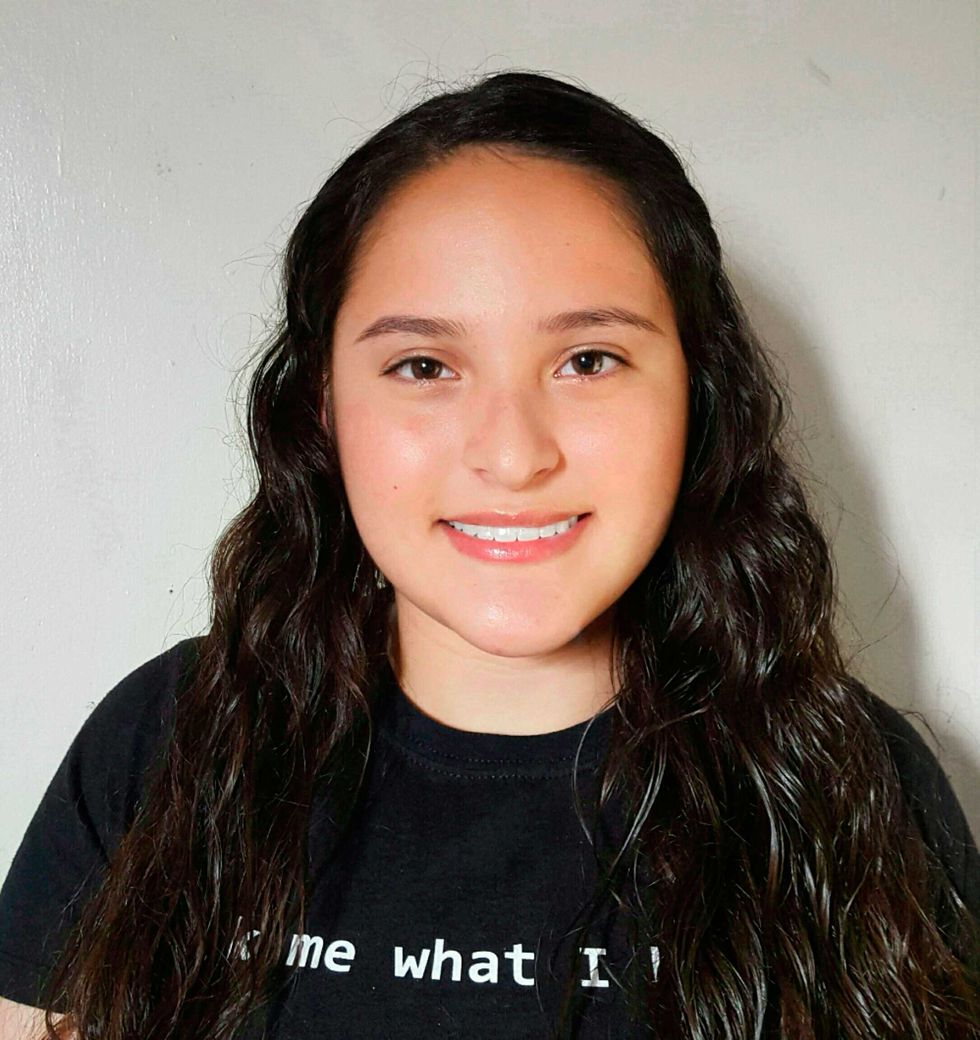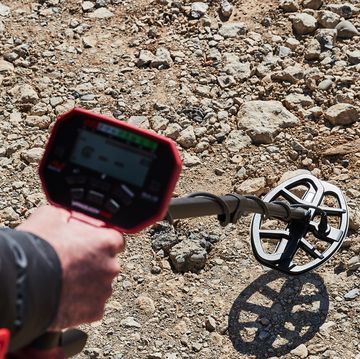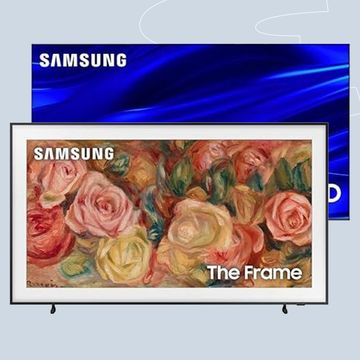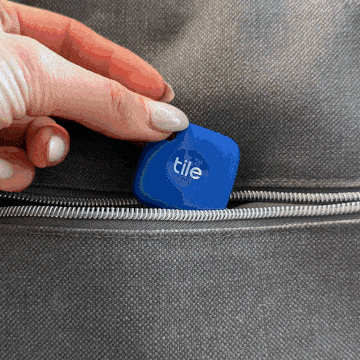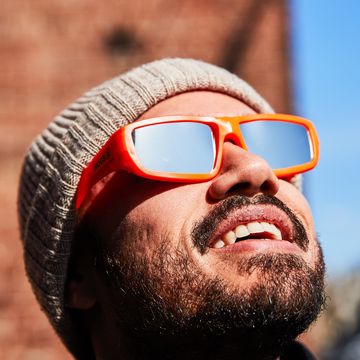On her first day of college, Claire Shorall mentally prepared to introduce herself to the room of strangers in her Intro to Engineering Computation class. The professor suggested that everyone share their hometown and any languages they knew. Shorall had her answer ready: "Hi, my name is Claire, I'm from Pittsburgh, Pennsylvania, and I speak Spanish."
Then the icebreaker started, and her classmates began ticking off skills:
"I'm proficient in Java."
"I know C++."
"I didn't even know what they were talking about," Shorall says of the litany of programming languages the other students listed. "I felt so underserved by my high school. I ended up not becoming an engineer, and I think part of it was just because I felt really defeated by computers."
Shorall ended up majoring in biological sciences and religious studies and becoming first an advanced placement biology, then AP calculus, then AP computer-science teacher at Castlemont High School in Oakland, Califoria, eventually teaching all three classes simultaneously. Now, after creating her own managerial position within the Oakland Unified School District, she is the key evangelist for computer-science education in the center of the computer-science universe. At a time when companies like Google, Apple, and Twitter fill less than a quarter of their technical rosters with women, Shorall's class is more than two-thirds female. It graduates women on fire for the subject, many of them going on to major in computer science in college.
Shorall's success has to do with two observations from her first computer-science class, in which she was one of perhaps a third of the people in the room without a Y chromosome. The first: Many young women leave high school with no awareness of computer science. The second: Once those same young women get to a CS class in college, or meet a tech company's engineering team, the stereotype that women are no good at computers hits them like a ton of bricks from the Super Mario Bros. games they may not have grown up playing.
That's been the experience of some of Shorall's students, like Alejandra Ibarra, eighteen, who knew nothing about computer science but wanted another AP class, or Sandra Vivian-Calderon, eighteen, who attended a coding camp at Shorall's suggestion mostly because participants got free computers. Now both young women are computer-science majors in the University of California system.
What Shorall has been able to show her students is that in today's world, computer science is empowering in practical ways. Odds are, if you cracked the average Silicon Valley girl's diary, you wouldn't read about Twitter's hiring practices, and boys would be crushes, not competitors. But you might find notes about the indignity of having to ask a male campus security officer for permission to use the bathroom, or worries about finding a safe route home from school. These are examples of problems Shorall's students have tackled with award-winning apps that might never have been designed if not for the influence of girls.
Shorall's conviction that empowerment is important—not just for women but for minorities and students who come from poverty—is leading her to take charge of larger and larger swaths of policy in California. Last fall she conceived and established the Oakland Unified School District's manager of computer science position, through which she coordinates education about the subject across the city. In December, she started a petition on Change.org asking the University of California to begin counting high school computer-science classes toward admission requirements, incentivizing high schools to offer them and eventually incorporate them in their core curriculums. The petition has already reached the ears of state policy-makers and industry leaders and received more than sixteen thousand signatures.
Among those signatures are Ibarra's and Vivian-Calderon's. Until policies are updated, Vivian-Calderon is helping her thirteen-year-old sister learn to code with the help of the online learn-to-program site Codecademy. Vivian-Calderon wants her sister to have the same advantages she's had, despite the fact that her sister's school doesn't offer computer-science classes. One day, that will change.
This story appears in the April 2016 issue of Popular Mechanics.
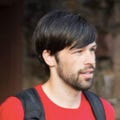
Kevin is a writer and editor living in Brooklyn. In past lives he’s been an economist, computer salesman, mathematician, barista, and college football equipment manager.
